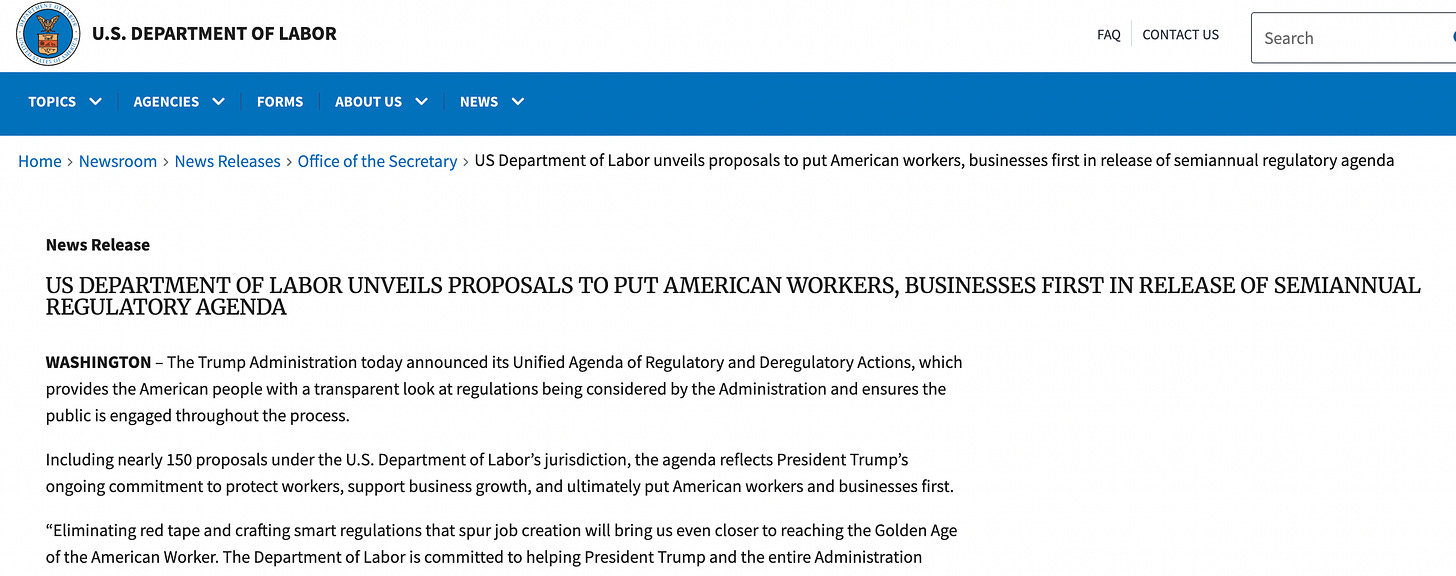'The Department Intends to Rescind'
U.S. Department of Labor says it will examine when a worker should be classified as an employee or an independent contractor.
Today, the U.S. Department of Labor issued a press release announcing the Trump administration’s Unified Agenda of Regulatory and Deregulatory Actions. This agenda lists various regulations the administration is considering.
Independent-contractor policy under the Fair Labor Standards Act is highlighted in this press release, which states:
“Employee or Independent Contractor Classification under the FLSA: The department will examine the circumstances under which a worker should be classified as an employee or independent contractor for the purpose of federal wage and hour requirements.”
Clicking from the press release to the complete semiannual agenda leads to another link that provides more details. There, it states:
“In 2024, the Department of Labor (Department) published a final rule providing an analysis for determining employee or independent contractor classification under the Fair Labor Standards Act (FLSA). See 89 FR 1638 (2024 IC Rule). The 2024 IC Rule took effect on March 11, 2024. However, the 2024 IC Rule is the subject of five separate legal challenges. The Department intends to rescind the 2024 IC rule and is considering how it will proceed with respect to independent contractor classification under the FLSA employee or under the FLSA.”
The Five Lawsuits
The five lawsuits noted in the description above include this one in which I’m a plaintiff, represented pro bono by Pacific Legal Foundation. Our case is called Warren v. U.S. Department of Labor. It’s named for Karon Warren, my fellow freelance writer and co-founder of the grassroots group Fight For Freelancers USA.
The other lawsuits are:
Littman v. Department of Labor (Margaret Littman is a freelance journalist and a member of Fight For Freelancers USA)
Back in April, the federal government indicated in court that it was considering plans to rescind the Biden-Harris administration’s independent-contractor rule and undertake the process of new rule-making.
In court filings, attorneys representing the U.S. Labor Department asked the courts to hold the cases in abeyance (essentially, meaning put them on hold) “because the agency’s reconsideration and potential rescission of the rule may obviate the need for further litigation.”
In May, the U.S. Labor Department announced that it had directed agency investigators not to apply the 2024 rule’s analysis in current enforcement matters.


